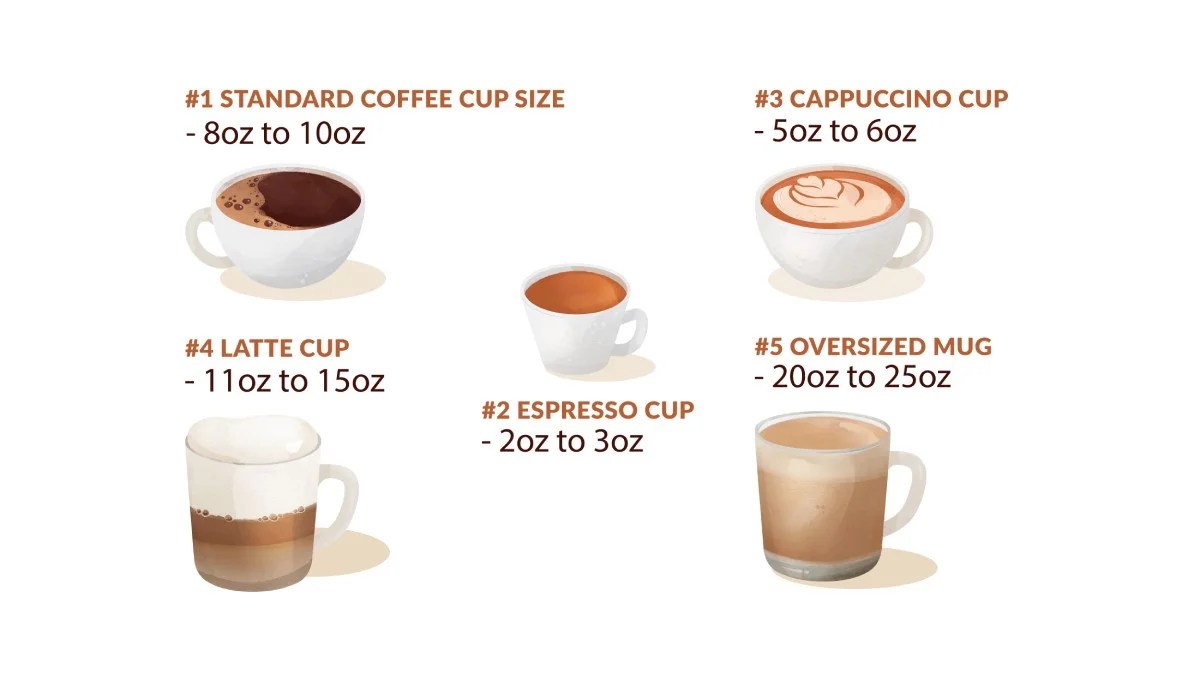When it comes to cooking, understanding measurements is key to achieving the perfect dish. One common question that arises in kitchens around the world is, "how many oz is a cup?" This question is essential for both novice and experienced cooks alike, as precise measurements can make or break a recipe. In this article, we will delve into the conversion between ounces and cups, explore various measurement systems, and provide tips for accurate measuring. Whether you're baking a cake or making a soup, knowing how to convert ounces to cups will enhance your culinary skills.
As we explore this topic, we'll cover a variety of related measurements and provide practical examples. Our goal is to equip you with the knowledge needed to ensure your cooking and baking endeavors are successful. By the end of this article, you will have a clear understanding of the relationship between ounces and cups, along with useful tips for accurate measurement.
So, let's get started on this journey of measurement mastery and find out just how many ounces are in a cup!
Table of Contents
- Understanding Ounces and Cups
- How to Convert Ounces to Cups
- Different Types of Cups
- Tips for Accurate Measurements
- Common Recipes and Their Measurements
- Cooking Techniques That Require Precise Measurements
- Essential Tools for Measuring Ingredients
- Conclusion
Understanding Ounces and Cups
To grasp the relationship between ounces and cups, it is important to understand what each measurement represents. An ounce (oz) is a unit of weight commonly used in the United States, while a cup is a unit of volume.
In the context of cooking:
- 1 cup = 8 fluid ounces (fl oz)
This means that whenever a recipe calls for a cup of liquid, you can translate that to 8 fluid ounces. However, keep in mind that this conversion applies specifically to liquid ingredients. When measuring dry ingredients, the weight can vary significantly based on the ingredient's density.
How to Convert Ounces to Cups
Converting ounces to cups is straightforward if you remember the basic conversion ratio. To convert ounces to cups, simply divide the number of ounces by 8. For example:
- 16 oz ÷ 8 = 2 cups
- 4 oz ÷ 8 = 0.5 cups (or 1/2 cup)
It is also helpful to have a conversion chart handy for quick reference. Below is a simple conversion chart for common measurements:
| Ounces (oz) | Cups |
|---|---|
| 1 oz | 0.125 cups |
| 4 oz | 0.5 cups |
| 8 oz | 1 cup |
| 12 oz | 1.5 cups |
| 16 oz | 2 cups |
Different Types of Cups
It's important to note that not all cups are created equal. There are different types of cups used in cooking and baking:
1. Measuring Cups
These are designed specifically for measuring ingredients. They usually come in sets and can measure both liquid and dry ingredients.
2. Standard Cups
Standard cups, like those used in table settings, can vary in size and may not provide accurate measurements for cooking.
Tips for Accurate Measurements
Accuracy is crucial in cooking and baking. Here are some tips to ensure you measure correctly:
- Use the right measuring tools: Always use liquid measuring cups for liquids and dry measuring cups for dry ingredients.
- Level off dry ingredients: Use a straight edge to level off flour or sugar for accurate measurement.
- Check for temperature: Some ingredients, like butter, can have different weights at different temperatures.
Common Recipes and Their Measurements
Understanding how ounces convert to cups can help you follow recipes more effectively. Here are some common recipes and their measurements:
- For a smoothie recipe: 1 cup of yogurt = 8 oz
- For a cake batter: 2 cups of flour = 16 oz
- For a soup base: 4 cups of broth = 32 oz
Cooking Techniques That Require Precise Measurements
Many cooking techniques depend on precise measurements. Here are a few:
- Baking: Baking requires exact measurements to ensure the right texture and flavor.
- Fermentation: Precision in measurements can affect the outcome of fermented foods.
- Emulsification: Accurate measurements are crucial in creating stable emulsions for sauces.
Essential Tools for Measuring Ingredients
Having the right tools can simplify measuring ingredients. Here are some essential measuring tools:
- Liquid measuring cups (preferably glass or plastic with measurement markings)
- Dry measuring cups (set of various sizes)
- Measuring spoons for smaller quantities
- Digital kitchen scale for precise weight measurements
Conclusion
In summary, understanding how many ounces are in a cup is essential for successful cooking and baking. Remember that 1 cup equals 8 fluid ounces, and use this knowledge to convert measurements accurately. Whether you're following a recipe or experimenting in the kitchen, having a grasp of measurement conversions will boost your confidence and cooking skills.
We encourage you to share your thoughts in the comments below, and don't forget to check out our other articles for more tips and tricks in the kitchen!
Thank you for reading, and we hope to see you back here soon for more culinary insights!
- La Freeway Protest
- Kristy Mcnichol
- 1230857 Tyler Perry Net Worth Age Height House Wife Son
- Tiffany Link Earrings
- 1534693 Piece Female Characters Deserve Attention
- Oleksandr Zinchenko
- Josh Allen Old Tweets
- Thay Ksada
- 1470855 Zack Lugos Biography Age Height Net Worth Girlfriend Brother


